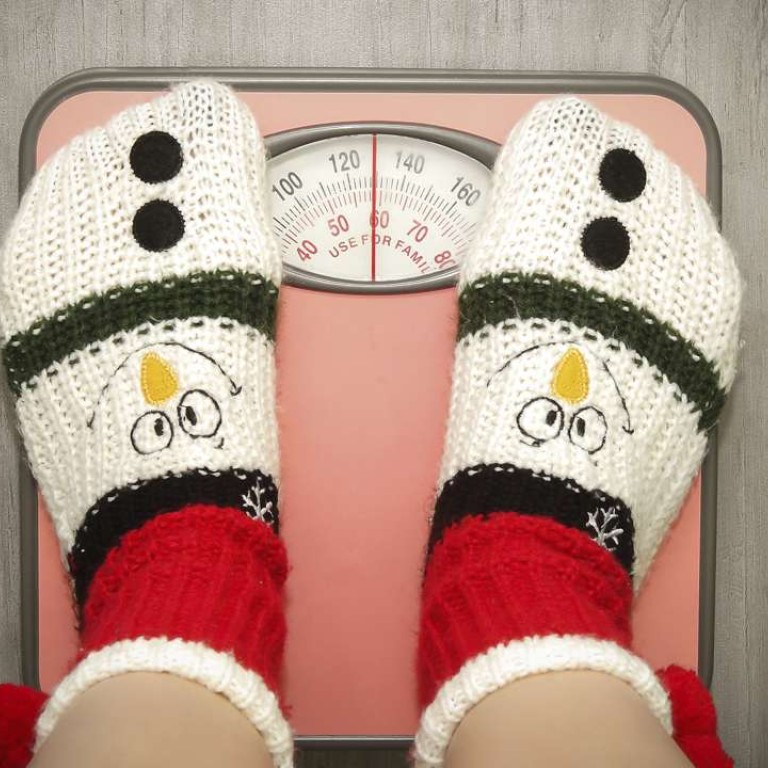
Why now is the lightest you will probably weigh all year
Study confirms that we stack on the kilos over the festive season – and it’s easier to avoid holiday weight gain than to lose the kilos after they happen
For the past few warm months, Swati Kapoor has been going easy on food and hard at the gym to look her best in summer dresses and bikinis. But with cooler weather coming, she knows it is probably downhill from here.
“In December I’m probably at my heaviest due to all the Christmas parties and markets, and the fact you can get away with a little flab under your winter coats,” she says.
Empathise with Kapoor? No surprise – and a recent study confirms it is not just coincidence.
For the average person, the time just before the start of the holiday season is the low point in an annual weight pattern that peaks during the holidays and takes nearly half a year to fully shed, according to the study published in September in the New England Journal of Medicine.

Using data from users of wireless scales (the Withings Smart Body Analyser, HK$1,298), the research team tracked weight gain and loss daily among nearly 3,000 adults in the US, Japan and Germany over one year, starting in August 2012. There were nearly 1,800 adults from the US (average age 42.2 years, 24 per cent obese), 400 adults from Japan (average age 41.6 years, 11 per cent obese) and 800 from Germany (average age 42.9 years, 19 per cent obese).
In the US, weight patterns begin rising at Thanksgiving and peak around Christmas and New Year’s Eve.
“We found that in the US, it isn’t until after Easter, about a five-month period, that weight patterns even out,” says Brian Wansink, director of the Food and Brand Lab at Cornell University in New York State. Wansink’s collaborators included researchers from Tampere University of Technology of Finland as well as Withings, the French company that sells connected health-monitoring devices.
The trend among the American participants indicated a weight bump of 0.2 per cent during Thanksgiving, and another 0.4 per cent at Christmas. It takes about five months to lose those holiday pounds, with weights typically stabilising from May to November before the cycle begins anew.

The German participants showed a similar trend, while the Japanese weigh the most during Golden Week, nearly one week off work around the end of April and beginning of May that combines a cluster of national holidays. Each country also showed a peak in weight gain at New Year’s.
“Everyone gains weight over the holidays – Americans, Germans, Japanese,” says Wansink. “Although this population sample may be wealthier, better educated and more motivated toward weight loss than average, [the study] still provides insights for practice.”
Hongkongers were not part of the study but it is unlikely we are immune to this trend, especially with food being a centrepiece of most celebrations. With the annual Lunar New Year holidays in late January in 2017, the holiday weight gain is likely to be prolonged.
Crystal Chan finds bucking the trend is easy. “I can’t run in the humid summer but love running in the autumn and early winter, so my personal weight seems less then,” she says.
But for most of us who struggle with holiday pounds, Wansink suggests instead of making a New Year’s weight-loss resolution, do it now. He says: “It’s easier to avoid holiday pounds than to lose them after they happen.”

